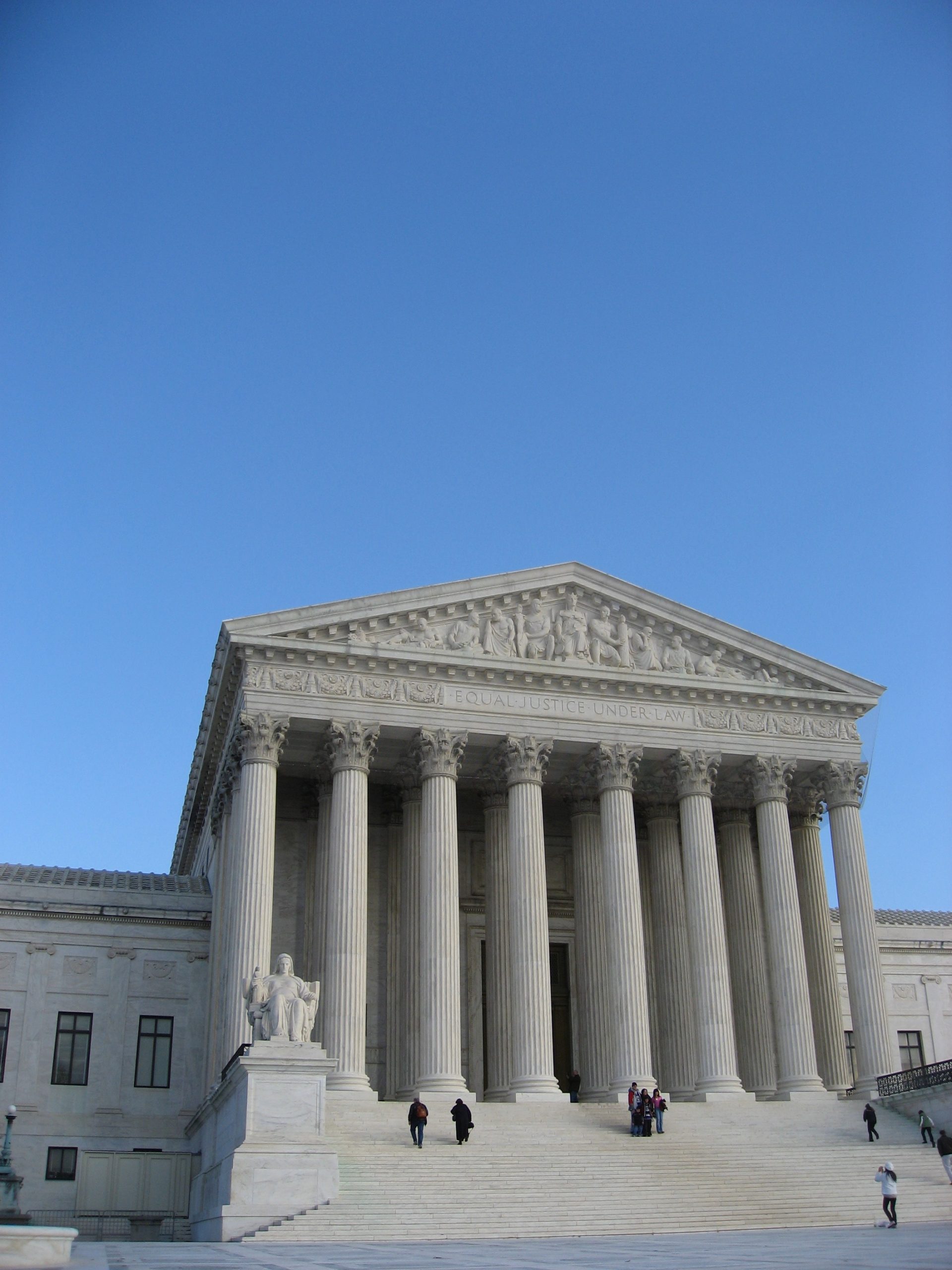 Dealing with the aftermath of a flood is never fun. This is especially true when the flood damages one of your vehicles. This is the situation Michael Jacobs found himself in after one of his cars was damaged in a flood. After a long fight with his insurance company, he eventually prevailed and was awarded damages.
Dealing with the aftermath of a flood is never fun. This is especially true when the flood damages one of your vehicles. This is the situation Michael Jacobs found himself in after one of his cars was damaged in a flood. After a long fight with his insurance company, he eventually prevailed and was awarded damages.
Jacobs owned multiple vehicles that GEICO insured. His parish in North Louisiana was affected by heavy flooding. When the flooding started, Jacobs and his brother tried to move the vehicles from his house to higher ground but were unable to remove them before the floodwaters rose, so they could not drive up to the house. Jacobs waded through the floodwater to retrieve one of the vehicles, a 2001 Honda Accord. In the days following the flood, the Honda kept overheating. Jacobs claimed this had only occurred after the flood.
Jacobs submitted a claim to GEICO for the damage to the vehicle. The insurance inspector did not identify any flood-related problems and determined the upper radiator hose had blown out. Another mechanic gave Jacobs an opinion and concluded there were issues with his spark plugs. GEICO ultimately denied Jacobs’ claim because it had suffered a mechanical failure that was not flood-related. Jacobs filed a lawsuit against GEICO, alleging his Honda had been damaged from the flooding. At trial, the court ruled the Honda had suffered water damage and awarded vehicle property damages and attorney fees. GEICO filed an appeal.
 Insurance Dispute Lawyer Blog
Insurance Dispute Lawyer Blog


 Imagine, for a moment, living a life of normalcy, the humdrum of day-to-day routines, a steady job, a peaceful existence. Suddenly, an unexpected accident shakes your world, thrusting you into the tumultuous tides of legal proceedings. This is the daunting reality Patricia and Calvin Henderson found themselves in, initiating a monumental case against Amy Lashouto and her insurer, State Farm Mutual Automobile Insurance Company (State Farm).
Imagine, for a moment, living a life of normalcy, the humdrum of day-to-day routines, a steady job, a peaceful existence. Suddenly, an unexpected accident shakes your world, thrusting you into the tumultuous tides of legal proceedings. This is the daunting reality Patricia and Calvin Henderson found themselves in, initiating a monumental case against Amy Lashouto and her insurer, State Farm Mutual Automobile Insurance Company (State Farm). Louisiana’s Workers’ Compensation fund exists to pay employees injured at work. Payment can be used for medical care and lost wages. When parties sign a settlement agreement on payment terms, an employee may assume payment is imminent. In a recent case from Rapides Parish, an employee discovered some conditions in a settlement may delay payment.
Louisiana’s Workers’ Compensation fund exists to pay employees injured at work. Payment can be used for medical care and lost wages. When parties sign a settlement agreement on payment terms, an employee may assume payment is imminent. In a recent case from Rapides Parish, an employee discovered some conditions in a settlement may delay payment.  A visit to the hospital is a stressful and anxious time for patients and family members. Most people, however, assume that their doctors are competent and will administer the proper standard of care. This was not the case for Richard Smallwood.
A visit to the hospital is a stressful and anxious time for patients and family members. Most people, however, assume that their doctors are competent and will administer the proper standard of care. This was not the case for Richard Smallwood.  Words matter, especially when it comes to trial court orders. Without the proper language, a judgment is not an appealable, valid final judgment, so an appellate court cannot consider the merits of an appeal.
Words matter, especially when it comes to trial court orders. Without the proper language, a judgment is not an appealable, valid final judgment, so an appellate court cannot consider the merits of an appeal.  If you receive notice of a court hearing, you must pay attention to it. The following case shows the potential adverse consequences if you ignore a court hearing notice. These can include a warrant being issued for your arrest or having your lawsuit dismissed. However, the case also unveils a glimmer of hope for those entangled in such legal dilemmas, offering a glimpse into the avenues available to those who believe justice has been denied.
If you receive notice of a court hearing, you must pay attention to it. The following case shows the potential adverse consequences if you ignore a court hearing notice. These can include a warrant being issued for your arrest or having your lawsuit dismissed. However, the case also unveils a glimmer of hope for those entangled in such legal dilemmas, offering a glimpse into the avenues available to those who believe justice has been denied. Most of us get into contracts, not fully understanding all the ins and outs of what we are signing. Similarly, the multiple provisions that can slither their way into contracts can include things like forum selection clauses which can be easily overlooked. But when a lawsuit erupts, can you argue a provision isn’t applicable? The
Most of us get into contracts, not fully understanding all the ins and outs of what we are signing. Similarly, the multiple provisions that can slither their way into contracts can include things like forum selection clauses which can be easily overlooked. But when a lawsuit erupts, can you argue a provision isn’t applicable? The  Sufficient evidence is required to prevail in any lawsuit. Generally, each side obtains additional evidence through the discovery process. However, what happens if a court grants a summary judgment motion for one party before the other party has time to complete adequate discovery? The following case helps answer this question.
Sufficient evidence is required to prevail in any lawsuit. Generally, each side obtains additional evidence through the discovery process. However, what happens if a court grants a summary judgment motion for one party before the other party has time to complete adequate discovery? The following case helps answer this question. Mardi Gras, a time of joyous celebration, took an unexpected turn for a store near a French Quarter hotel when a sprinkler head malfunctioned, resulting in significant water damage. Despite the storeowner’s insurance covering the damages, a lawsuit ensued to determine the hotel’s liability for the losses incurred. This case highlights the complexities of determining responsibility and legal remedies in property damage cases, emphasizing the importance of seeking legal counsel to navigate such situations effectively.
Mardi Gras, a time of joyous celebration, took an unexpected turn for a store near a French Quarter hotel when a sprinkler head malfunctioned, resulting in significant water damage. Despite the storeowner’s insurance covering the damages, a lawsuit ensued to determine the hotel’s liability for the losses incurred. This case highlights the complexities of determining responsibility and legal remedies in property damage cases, emphasizing the importance of seeking legal counsel to navigate such situations effectively. Nobody likes insurance policies or divorce. Both can be extremely messy and full of legal jargon. Megan Daigle experienced this firsthand as her divorced parents’ insurance did not cover everything they hoped for.
Nobody likes insurance policies or divorce. Both can be extremely messy and full of legal jargon. Megan Daigle experienced this firsthand as her divorced parents’ insurance did not cover everything they hoped for.